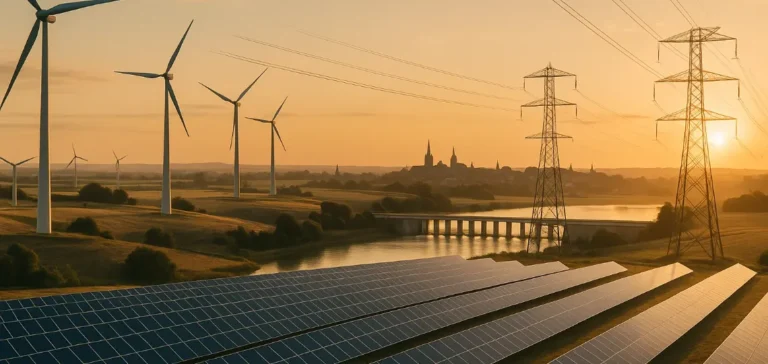After several parliamentary debates, the French National Assembly approved an amendment aiming to produce at least 200 terawatt-hours (TWh) of renewable electricity by 2030. This measure is part of a legislative proposal concerning the national energy strategy, led by Senator Daniel Gremillet and currently under parliamentary review. France thus plans a total production of 560 TWh of decarbonized electricity by the end of the decade, including renewable energy sources and nuclear power. The parliamentary decision now explicitly specifies a dedicated share for renewable sources.
Renewable energy targets clarified after debate
The socialist MP Marie-Noëlle Battistel initiated the amendment adopted by the deputies. Initially, the draft law did not precisely define the contribution of renewable energies to the future national energy strategy. This absence sparked significant discussions among parliamentary groups, notably on the left, with some MPs fearing an increased predominance of nuclear energy. The government and the bill’s rapporteur, Antoine Armand (Renaissance), maintained a cautious position toward the amendment, allowing the Assembly the freedom to decide on this specific target.
Criticism over lack of detailed targets
Despite the agreement on the overall objective, several left-wing parliamentarians criticized the lack of precision regarding specific targets for each renewable energy source (wind, solar, hydro). According to them, this imprecision could hinder investments and slow the growth of relevant industrial sectors. Karim Benbrahim, a socialist deputy from Loire-Atlantique, notably described this approach as a “simple subtraction,” highlighting that it solely arises from the difference between the total objective for decarbonized electricity and EDF’s nuclear production forecasts for the coming years.
Government’s flexible approach
Marc Ferracci, Minister of Industry, explained the government’s choice not to set overly specific objectives per sector in the legislation. He justified this approach by highlighting the necessity of preserving flexibility and adapting targets based on future technological, industrial, and economic developments. This strategy has been considered necessary to allow improved management of investments in renewable energy and nuclear sectors in the medium and long term.
The legislative text continues its parliamentary process and will undergo further adjustments during upcoming parliamentary discussions.






















